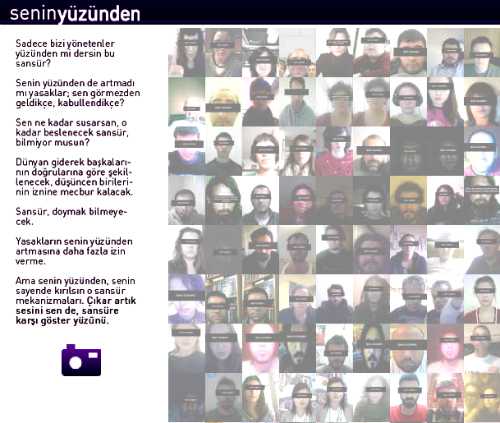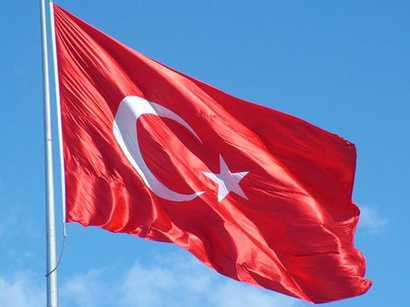An Internet content filtering system that Turkey’s Information Technologies and Communications Authority (BTK) introduced on 22 November is proving controversial both domestically and abroad. The outcry has coincided with a conference on the Internet in Turkey that began in the southwestern city of Izmir on 30 November.

After a legal bid by the news and human rights website Bianet to prevent the system’s introduction, the Alternative Information Association (Alternatif Bilisim Dernegi) petitioned the Council of State on 4 November to block it, claiming that it is illegal and unconstitutional.
Although use of the filtering system is optional, it is misleading. It is supposed to protect Internet users, especially minors from “objectionable content” by censoring certain keywords. But tests of the new system have established that access to websites is being blocked arbitrarily.
“The BTK wants us to believe that, by giving Internet users a choice, it is not practicing censorship,” Reporters Without Borders said. “Claiming that use of this filtering system makes an Internet connection secure is disgraceful. Some websites may be inaccessible but that does not make the Internet connection any safer.
“Trying to shield Internet users, especially children and youths, from online pornography is a worthy initiative in principle, but the proposed solution is not fit for purpose and threatens online free expression, as the Court of Justice of the European Union ruled a week ago, above all because of the risk of overblocking. If only porn is supposed to be blocked, why are terms related to Kurdish separatist movements, for example, on the list of censored keywords?
“We condemn a policy of backdoor censorship. The BTK must abandon this system, which is reinforcing Internet censorship in Turkey. We appeal to all the agencies that control telecommunications in Turkey to stop trying to outdo each other in censorship measures. Everyone must be guaranteed unrestricted access to the Internet and it should be up to families, not the state, to decide which content they find objectionable.”
Anyone can sign up for the filtering system, which comes in a family version and a child version. So far only 22,000 of the country’s 11.5 million Internet users have signed up. Internet Service Providers are required to offer it to all their clients. Porn websites and other “suspect” sites that were previously blocked by court decisions will now be automatically filtered out for anyone who adopts the system.
Reporters Without Borders calls on the authorities to provide precise information on the way the filtering works, as it is not at all clear.
The filtering criteria are defined by a commission consisting of 11 members. As most of them are government officials, the commission’s independence and impartiality are questionable. It has so far drawn up a list of 130 “harmful” keywords in Turkish, English and German. The list includes “pornography,” “sex,” and “Verbot” (the German word for “ban”). It also includes such words as “mother-in-law,” “incest” and even “gay.”
This eclectic and often discriminatory list will extend the censorship to ordinary news websites and prevention campaign sites, while encouraging homophobia. Keywords related to separatist political groups such as the outlawed Kurdistan Workers Party (PKK) are also filtered, which clearly shows that the BTK is not just targeting online porn.
As well as the websites targeted by the authorities, it is clear that many other sites are going to be blocked by the censorship system. Google, online social networks and news websites are all liable to be the victims of overblocking.
The system is “arbitrary,” says Yaman Akdeniz, deputy head of the law faculty at Istanbul’s Bilgi University and founder of Cyber-Rights. “The Internet is gradually coming under the government’s control,” he told Reporters Without Borders. “The fact that [this filtering system] is optional does not resolve the problems it creates. We are going to pursue our legal initiatives on behalf of free expression and democracy.”
According to Akdeniz, those who install the “child” option cannot access evolutionary biologist Richard Dawkins’ website (see screenshot below) but they can access the site of Adnan Oktar, an Islamic creationist.
Reporters Without Borders’ correspondent has used an online tool called Guvenlinet to identify some of the sites that are blocked by the system. Yasam Radyo (Radio Life), for example, a site that broadcasts cultural programs for minorities, is blocked by the “child” version.
The “child” version also blocks access to Facebook and the online video-sharing website YouTube. Facebook cannot be accessed with the “family” version either, unless the user specifically requests access. Akdeniz said blocking a five-year-old child’s access to YouTube is understandable, but denying access for adolescents over 14 is exaggerated.
The BTK’s filtering system has not left Turkish Internet users indifferent. The Senin Yüzünden – Because of You website is inviting them to post photos of themselves blindfolded in a protest targeted at the Izmir conference that ends on 2 December.
Turkey is listed as a “country under surveillance” in the latest Reporters Without Borders report on “Enemies of the Internet,” which was released on 11 March.
via New Internet filtering system condemned as backdoor censorship – Reporters Without Borders.






